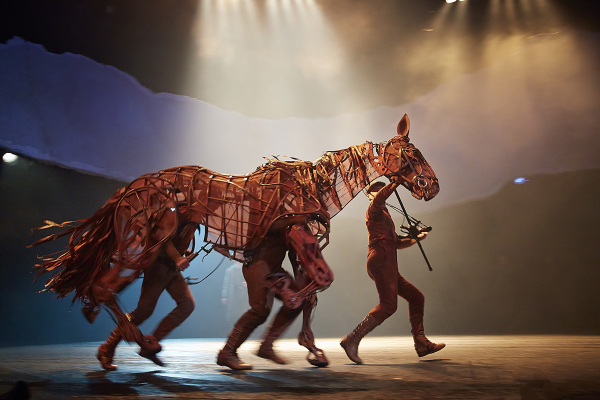Matt Trueman: Should subsidised theatres rethink self-producing?
Matt Trueman looks at the dangers of self-producing commercial transfers

© Brinkhoff/Moegenburg
Self-producing has become the norm. Subsidised theatres with a hit on their hands are increasingly transferring their hits by themselves, either single-handedly or in partnership with a commercial producer. Consensus has declared this a very good thing indeed.
Rightly so, for the most part. The National and the RSC are thriving off the back of War Horse and Matilda profits. Hampstead Theatre has clawed its way back into the black, thanks, in part, to the success of Sunny Afternoon. The Royal Court recouped its costs for The River in only six weeks. (Such is the Hugh Jackman effect). Such profits have helped Britain’s subsidised theatres to more than offset funding cuts and support artistic risks. Without War Horse, for example, there would have been no Shed.
The model dates back to The History Boys. In 2006, the National’s then executive director Nick Starr pushed for the NT to transfer Alan Bennett’s play into the West End itself. "Our charitable objects do not prevent us from doing this", he explained at the time, arguing that the financial benefit "could be very significant indeed". As has proved the case and so strengthened the consensus on self-producing.
However, I recently interviewed the directors of Playful Productions – one of the top commercial outfits around – for The Stage and they raised a question-mark about the wisdom of the model. "Should a theatre supported by the Arts Council be gambling in the commercial arena?" Matthew Byam Shaw wondered aloud. "I can see someone getting a very bloody nose sooner or later".
Commercial producing always involves a financial risk. High costs mean high stakes and, as the voice at the end of get-rich-quick adverts might say, investments can fall as well as rise. Theatre is a notoriousy unpredictable market. It’s all too possible to lose a fortune.
The National recently did so on its West End transfer of Richard Bean’s hacking-scandal comedy Great Britain. Its four-month run at the Haymarket, without stars Billie Piper and Oliver Chris, was announced only days after its premiere received lukewarm reviews, presumably banking on replicating the popularity of Bean’s One Man, Two Guvnors. In the end, the West End run wiped out any profits the show had made at the National.
That’s not the end of the world, but Byam Shaw’s point is that another could be much worse. Commercial producers build up reserves, theoretically allowing them to survive such losses. Subsidised theatres, on the other hand, are ploughing any commercial profits back into the organisation’s work and that could leave the organisation itself vulnerable to a commercial disaster.
It’s not as simple as that. The subsidised organisations have separate commercial arms precisely to safeguard against such problems, and we should trust that those in charge know what they’re doing. National Theatre Productions, for example, has brought in more than £15 million in the last five years.
Of course, it’s in Playful’s interests to raise alarm bells. The subsidised sector is not just becoming a competitor in the West End, by self-producing, even in partnership with a commercial producer, it lessens the role of and reliance on commercial outfits like Playful. Such producers used to pick up the big shows and move them into town, carrying the risk of doing so.
Now one might – and one should – consider this as subsidised theatres getting a better deal and protecting their own commercial interests. Rather than simply handing shows over for a fee or a small cut, they are staking a claim to the fruits of success.
However, the problem comes when the subsidised theatres become too reliant on their commercial arms. That could all too easily push them in new directions – either into taking greater financial risks with the work it transfers, or, worse, taking fewer artistic risks in its original programming. Put another way – and speaking hypothetically – will Rufus Norris and Tessa Ross have to match their predecessors’ record turnover?
It also risks fostering inequality. The biggest subsidised organisations, like the National and the RSC, have the resources to cushion losses and so take extra financial risks. Less well-funded organisations, on the other hand, still need a helping hand from commercial producers and so stand to benefit less from their transfers. All the more reason to redress the Londoncentricity of arts subsidy.
Self-producing has been a brilliant innovation in the last decade, but there is a danger that it becomes a slippery slope. If it does, the fall-out could be disastrous.













